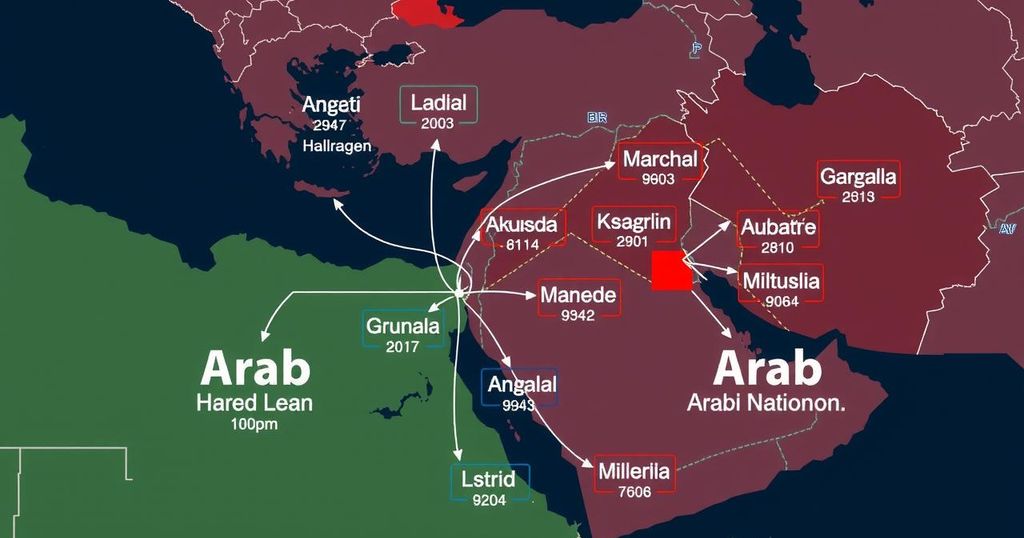On October 26, 2024, Israel launched attacks on military sites in Iran, prompting condemnation from various Arab nations, including Saudi Arabia and the UAE, which called for restraint. Regional tensions are heightened amid ongoing conflicts in Gaza and Lebanon, with Israel warning Iran against retaliation.
On October 26, 2024, Israel executed a military strike on various facilities in Iran, notably not targeting the nation’s crucial oil and nuclear locations. This military action has raised considerable alarm among neighboring Arab nations, prompting widespread calls for restraint amid increasing regional tensions exacerbated by ongoing hostilities in Gaza and Lebanon. The Israeli military acknowledged the strikes, which involved multiple waves of aerial assaults on missile sites. Following the attacks, Israel issued stern warnings to Iran against retaliation, thereby heightening anxiety over potential escalations in conflict. In reaction to this event, several Arab states have voiced their positions, emphasizing the need for peace and dialogue. Saudi Arabia condemned the conduct of Israel, stating that it breached Iranian sovereignty and violated international law, asserting their determination to maintain stability in the region. The Saudi Press Agency conveyed this sentiment, urging all parties involved to exercise full restraint and to alleviate tensions. Similarly, the United Arab Emirates expressed deep concern about the implications of Israel’s military action on regional security and stability, calling for diplomatic resolution. Iraq denounced the attack, condemning Israel for its aggressive policies and advocating for a ceasefire in the ongoing conflicts in Gaza and Lebanon. Qatar, serving as a mediator in the Gaza situation, highlighted the seriousness of the repercussions following the assault on Iran. Oman expressed concern that this attack would perpetuate violence and inhibit de-escalation efforts in the area. Syria showed solidarity with Iran, asserting its right to self-defense. Moreover, Jordan criticized the attack as a violation of international law, urging immediate international intervention to curb Israel’s actions not only against Iran but also in the broader context of the regional conflicts. Ultimately, this incident reflects the fragile state of peace in the Middle East, as Arab countries collectively navigate their responses to ongoing provocations while advocating for dialogue and restraint among competing powers.
The recent military confrontation between Israel and Iran is rooted in a long-standing historical tension marked by ideological, political, and military conflicts in the region. The Israeli government has regularly expressed concerns regarding Iran’s military advancements, particularly in missile technology and nuclear capabilities, which they perceive as existential threats. The Arab nations, especially those in close proximity to these two actors, remain apprehensive about any escalation of hostilities that could destabilize an already volatile region, already marred by multiple ongoing conflicts, including in Gaza and Lebanon. The joint reaction from various Arab states signifies a collective apprehension towards unilateral military actions that provoke broader warfare and regional instability.
In conclusion, the Israeli strike on Iran has elicited a unified response from Arab countries, all urging restraint and dialogue to prevent further escalation of conflict. As regional dynamics shift, the call for diplomacy and the protection of state sovereignty appears paramount to maintaining peace. The complexity of the situation underscores the importance of international engagement to de-escalate tensions and to foster a more stable regional environment.
Original Source: en.tempo.co







